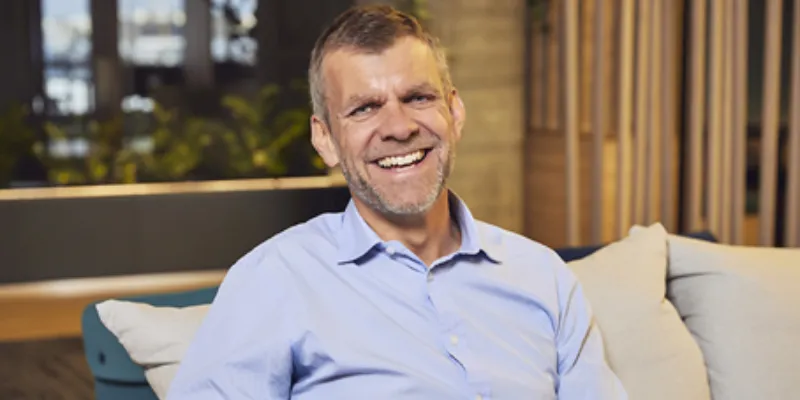Ecommerce to ride-sharing: Ex-Ebay CEO Simon Smith's take on why Australia is important to Ola
Simon Smith, Managing Director, Ola Australia tells YourStory how he intends to crack the ride-sharing market in Australia.
Earlier this month, Ola, the Bengaluru-based ride hailing platform had announced that it had roped in Simon Smith as Managing Director for Ola Australia.
Simon Smith was earlier the CEO of eBay Australia and the VP of Virtual Offices at ServCorp, a consultant at McKinsey and Company and non-executive Director of Sportsbet.
Ola spread its wings in the international market by venturing into Australia in the beginning of the year. In Australia, the ride-hailing unicorn is now present in Perth, Sydney, Melbourne, Canberra, Brisbane and the Gold Coast and will soon launch in Adelaide.
Late last year, Ola raised $1.2 billion in funding from Japanese conglomerate SoftBank. Founded in 2011, Ola is already present across over 11 categories in 110 cities in India, and claims to have over 125 million users in India.
In Australia, the team claims to have over 40,000 registered driver partners. Simon in his new role will help Ola grow and further build its presence in Australia.

YourStory: What attracted you to Ola?
Simon Smith: I was interested in leading a business that is community oriented, growing quickly, has technology at its heart and a ‘data for good’ approach to solve problems at the core of society.
YS: Ride-sharing is a tough business. How do you plan to break into the Australian market?
SS: Ola is a community-oriented transportation platform that’s driver-focussed. We find that Australian customers deeply care about drivers getting a fair deal, and are choosing Ola because of that. Drivers are earning more through lower commissions and customers benefit from lower tariffs than other platforms. By enabling driver-partners to provide the best experience possible, customers are in turn enjoying high-quality journeys.
YS: What are you plans to help Ola penetrate in the Australian market in the coming quarter?
SS: Our fresh approach to ridesharing is that we are driver focussed. Apart from the low commissions and high earnings, we are also focused on community-initiatives like town hall- meetings with our driver-partners, and other programmes, that has spread word across the industry that we are a better transport platform.
YS: What are the key challenges of building a ride-sharing business in Australia and how will you overcome them?
SS: Ola is exploring opportunities with local governments and communities in Australia to invest in smarter transport infrastructure and unlock the unique mobility needs of Australians to build high-quality rides, with affordable prices and enjoyable experiences.
YS: How has the market in Australia evolved and grown for internet business from your eBay days?
SS: It has changed enormously. When I started at eBay most people were still on dial-up internet connections and mobile commerce was a joke. However, at the heart it's still the same, a very competitive data-driven business, in which the players win by providing the best overall customer and supplier experience at the best price.
YS: How do you work around regulatory challenges in ride-sharing?
SS: Australia is an attractive market as it values fair competition and has a supportive regulatory environment. We work in close collaboration with the government and relevant authorities to create services that best suit local requirements. We are hopeful that we will do our bit to develop ingenious solutions for solving issues by collaborating with local communities and organisations.
YS: How is the change of pace in terms of working for a ride-sharing business?
SS: I love it, the cadence of the business is fast and everyone is incredibly motivated to do their best for the community and the business.
YS: What can we expect from Ola in Australia in the near future?
SS: Our objective is to enable on-demand transportation as part of the shared economy, and we are currently one of the world’s largest ride-sharing companies. There is a lot of scope in building a sustainable transportation ecosystem for the future of Australia and Ola is going to be an integral part of this journey.







